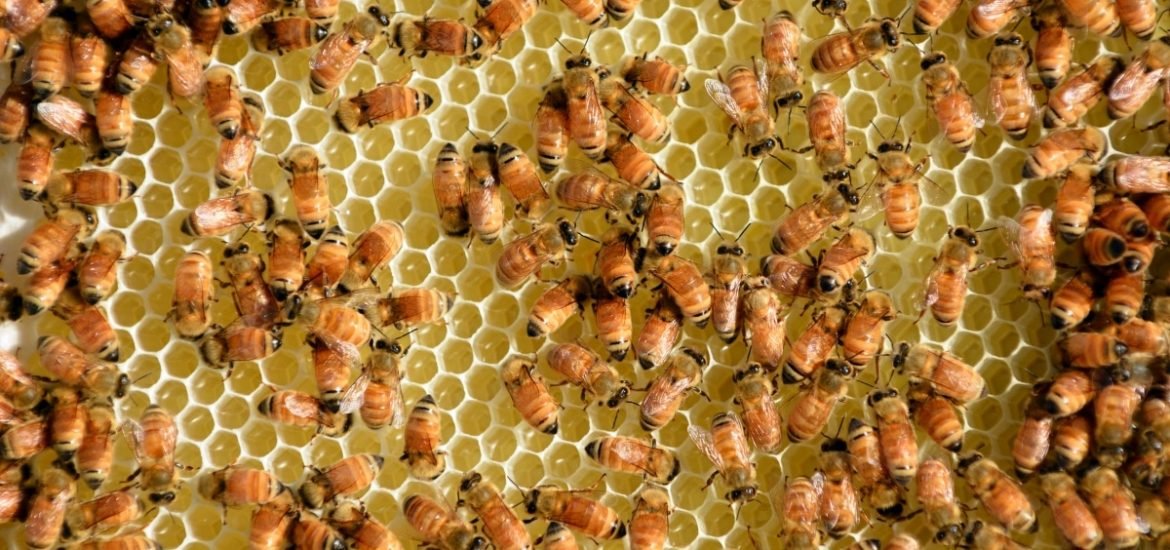
More bad news for bees it seems. A new study published on 24 September in Proceedings of the National Academy of Sciences, a highly regarded journal, has revealed that a commonly used herbicide ― glyphosate, the main ingredient in Monsanto’s Roundup ― may be contributing to the decline in the global honeybee population.
The herbicide was previously thought to be harmless to bees but may actually be disrupting their microbiome ― the population of healthy bacteria that inhabit the intestines of animals ― making them more vulnerable to infection. The gut microbiome provides a crucial defence against invading pathogens in many species including humans. After exposure to glyphosate, honey bees lose a significant amount of beneficial bacteria in their guts.
In 2017, after a bitterly fought battle in which 1.3 million people signed a petition calling for a ban of glyphosate in Europe, a 5-year license for the herbicide was renewed. Glyphosate has long been controversial and brings into question modern farming techniques, regulatory standards, and the safety of ubiquitous herbicides, pesticides, and other chemicals currently being used in agricultural practices. While Monsanto insists that glyphosate is safe, the World Health Organisation declared it to be “probably carcinogenic to humans,” although, several international agencies, including the European Food Safety Authority (EFSA), do not agree.
To investigate whether glyphosate may, in fact, harm bees, the researchers, led by Prof Nancy Moran, an evolutionary biologist at the University of Texas, exposed honeybees to levels of the herbicide that occur in crop fields, yards, and roadsides. After only three days, the gut microbiota of exposed bees was significantly reduced, in particular, five times less of a bacterium known as Snodgrassella alvi was found, and the bees were far more likely to die from a common pathogen, Serratia marcescens than those with a healthy gut. Only 12 per cent of bees with an impaired microbiome survived compared to a 47 per cent survival rate for healthy bees.
The results are somewhat confusing since bees exposed to the highest levels of glyphosate had a more normal looking microbiome. The authors suggest that more bees exposed to the higher dose may have died, leaving behind those that can tolerate the herbicide. Furthermore, it remains unclear why the disrupted microbiome makes bees more susceptible to infection. Part of the gut wall is lined by S. alvi which may provide a protective barrier and is known to secrete a chemical that attacks invading pathogens.
The study challenges previous studies which concluded that animals are immune to glyphosate because it only targets a cellular mechanism specific to plants and some bacteria. Glyphosate works by blocking an enzyme used by certain plants and some bacteria to make a number of key amino acids, the elementary units of protein. The enzyme is not produced by plants. The enzyme-blocking glyphosate is purported to lower carbon emissions and protect soil quality and has become a mainstay of modern agricultural techniques, despite condemnation from critics for its danger to plants, animals, people, and importantly, bees.
Based on these new findings, the researchers believe glyphosate may be contributing to the decline in global honeybee numbers. While the herbicide is not the only cause of this decline ― pesticides, pathogens, parasites, and nutritional problems all play a role ― its widespread use makes these findings highly alarming. The most interesting aspect of the paper is that it suggests a mechanism ― a disrupted gut microbiome.
(1) Motta, E. V. S., Raymann, K., and Moran, N. A. Glyphosate perturbs the gut microbiota of honey bees. Proceedings of the National Academy of Sciences (2018) DOI: 10.1073/pnas.1803880115